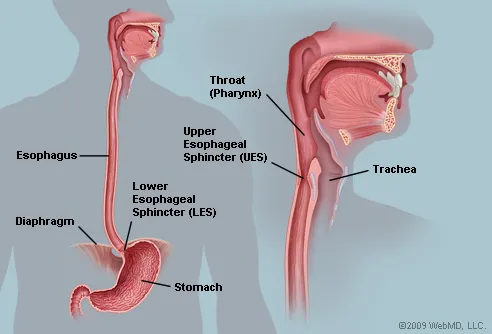Heartburn Treatment

About ACID REFLUX and GERD
GERD is one of the most common gastrointestinal diseases. It is caused by the flow of contents from the stomach upwards into the esophagus result in both symptoms and complications.
The most common GERD symptoms are:
- Heartburn - a burning sensation in the chest behind the breastbone
- Regurgitation - a feeling of fluid or food coming up into the chest
- Hoarseness
- Chronic cough
- Dental erosions
- Bitter taste in the mouth
- Asthma-like symptoms
Symptoms are often experienced after meals.
GERD is defined as Heartburn or symptoms happening two or more times per week that are troublesome.
Over-the-Counter or prescription medications may be needed.
Persistent symptoms may require further investigation such as with an endoscopy
Surgery can be considered if you cannot tolerate medications or have persistent symptoms.
GERD/Heartburn Tips
2-3 HOURS
- Avoid meals within 2-3 hours of bedtime
LOSE WEIGHT
- If you are overweight and can lose weight, GERD symptoms can improve
HEADS UP
- Raise the head of your bed 6-8 inches to avoid regurgitation and possible aspiration
LEFT SIDE
- Sleep on your left side to ease nighttime heartburn
STOP SMOKING
More Tips:
- Wear loose fitting clothes
- Eliminate food triggers
- Take your medications as directed
- Ask your doctor which treatment option is right for you
FOOD triggers to AVOID
- Carbonated beverages
- Chocolate
- Citrus drinks
- Coffee
- Fatty or spicy foods
- Peppermint
- Tomato products
If left UNTREATED, COMPLICATIONS may include:
- Esophageal stricture
- Bleeding
- Barrett's esophagus
- Esophageal cancer
When should you see a doctor about symptoms of heartburn?
If you have any of the following:
- Symptoms of heartburn two or more times a week
- Don’t get lasting relief on medication you are taking
- Difficulty swallowing, especially solids
- Choking, wheezing, hoarseness caused by regurgitation of acid into the throat
Signs of bleeding (vomiting dark coffee ground-like material or passage of tarry black bowel movements) - Unexplained weight loss
- Reflux symptoms over more than one year
When and what tests to evaluate GERD
When symptoms are frequent, severe, or not controlled with modification in diet and lifestyle plus use of acid
blocking medicines, further testing may be indicated.
EGD (esophagogastroduodenoscopy): this test involves passage of a lighted flexible tube through the mouth into the esophagus,
stomach, and upper intestines. Doctors will often spray the back of the throat with an anesthetic and give intravenous sedatives to make the test more comfortable. The EGD is the single best test to
evaluate the esophagus for damage from GERD. When necessary, EGD can be safely performed by doctors during pregnancy.
Esophageal Manometry and pH Tests: these tests involve insertion of small catheters (plastic tubes) through the nose into the
esophagus to measure pressures and the amount of acid refluxed into the esophagus. These tests are reserved for persons with atypical and/or severe symptoms of GERD.
Surgical Options for Chronic, Severe Heartburn
Generally, there appears to be some relationship between success in reflux surgery and success with medical treatment, for instance, those who
have had good results on medical therapy seem to have better results from surgery. Conversely, the intractable reflux patients -- those who have been unsuccessful in resolving their symptoms using
medical therapy with prescription acid suppressing medicines -- do not seem to be very good candidates for surgery.
The physician who has been treating your heartburn/GERD with medications should be involved in any consideration of surgery. While there are
many patients who have experienced good results through surgery, there is limited, long-term information on continuous relief many years after surgery, and results can vary significantly depending
upon the type of hospital and the experience of the specific surgeon.
"Open" fundoplication. This classic surgery requires an incision in the abdomen and/or chest. The surgeon will create an artificial valve
using the top of the stomach to prevent further acid reflux into the esophagus. Recovery from surgery requires a week or more in the hospital.
"Laparoscopic" fundoplication: This newer method of surgery uses a lighted tube inserted through a tiny incision in the abdomen to create a
valve from the top of the stomach to prevent acid reflux into the chest. Many experienced surgeons have excellent results with this new and safe procedure. Recovery from laparoscopic surgery often
requires only a few days in the hospital.

